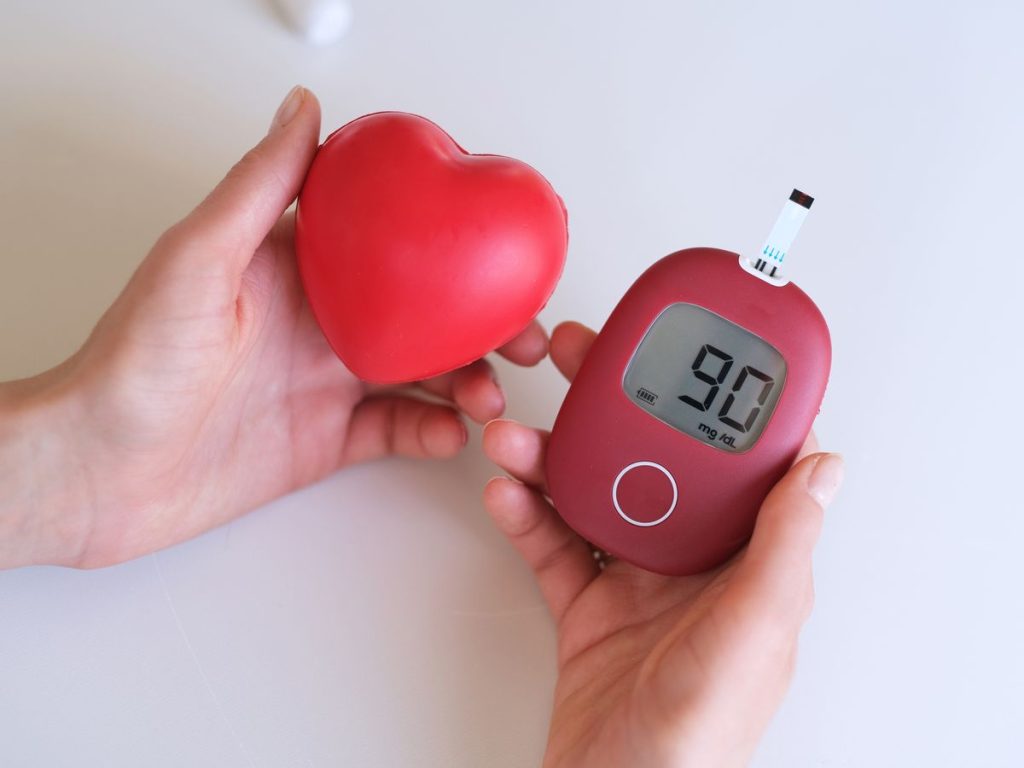
Cardiovascular diseases remain one of the leading causes of death worldwide, and while they cannot be fully cured, they can be managed. Monitoring your heart health at home can help you take preventive steps to avoid harmful lifestyle habits and conditions that could negatively impact your heart and overall well-being. Below are some simple home tests, self-assessments, physical activities, and tips for maintaining optimal heart health.
Basic Home Checks for Heart Health
You can perform the following simple checks at home to monitor your heart’s condition:
Blood Pressure:
Blood pressure is a key indicator of heart health. Hypertension (high blood pressure) can damage arteries and increase the risk of heart attack, stroke, and other cardiovascular diseases. Using a home blood pressure monitor helps you regularly track this important metric. A healthy blood pressure reading is typically 120/80 mmHg or lower, but for those at risk of heart disease, a target of 130/80 mmHg may be used. If your readings are high, it’s important to consult your doctor regularly.
Pulse:
Your resting heart rate provides insight into how well your heart is functioning. For adults, a normal resting heart rate ranges from 60 to 100 beats per minute (bpm). An unusually high or low heart rate, particularly if accompanied by symptoms such as dizziness or shortness of breath, could indicate an underlying issue. Regularly checking your pulse allows you to detect any irregularities early.
Weight and BMI:
Maintaining a healthy weight is crucial for heart health. Body Mass Index (BMI) is a helpful indicator, with a normal range between 18.5 and 24.9. However, BMI doesn’t account for factors like muscle mass or fat distribution, so measuring waist circumference is also useful. Obesity, particularly abdominal fat, is linked to higher risks of heart disease and type 2 diabetes.
Self-Assessment of Risk Factors
It’s important to assess your personal risk factors for heart disease, including:
- Age: The risk of heart disease increases with age.
- Family History: If heart disease runs in your family, your risk is higher.
- Smoking: Smoking damages blood vessels and increases the risk of cardiovascular diseases.
- Diet: Consuming processed foods, unhealthy fats, and excessive sodium can increase the risk of heart disease.
- Exercise: A sedentary lifestyle weakens the heart’s ability to pump blood efficiently.
- Stress: Chronic stress can lead to hypertension, and unhealthy coping mechanisms such as smoking or overeating can further strain the heart.
Understanding these risk factors allows you to make lifestyle adjustments to reduce your chances of developing heart disease.
Healthy Lifestyle Tips
In addition to regular home checkups, adopting healthy habits is key to maintaining heart health:
Diet:
Eating a heart-healthy diet is crucial for preventing cardiovascular disease. Focus on:
- Consuming plenty of fruits and vegetables, which provide fiber, vitamins, and antioxidants.
- Limiting intake of saturated fats, trans fats, and sodium to lower the risk of high blood pressure.
Stress Management:
Chronic stress can harm your heart, so managing it effectively is essential. Engage in activities like:
- Deep breathing exercises: These help lower your pulse and blood pressure.
- Yoga: Combines physical activity with relaxation techniques to reduce stress.
Sleep:
Getting 7-9 hours of quality sleep each night is vital for heart health. Disrupted sleep patterns or conditions like sleep apnea can increase the risk of heart problems.
When to See a Doctor
Seek medical attention if you experience:
- Persistent or severe chest pain, especially if it radiates to your arms, neck, or jaw.
- Unexplained headaches or dizziness.
- Unusual heart rhythms, whether too fast or too slow.
If symptoms persist despite home remedies, or if anxiety about your heart health is unmanageable, consult a healthcare professional.
Importance of Regular Checkups
Even if you feel healthy, regular checkups with your healthcare provider are essential for long-term heart health. These visits allow for early detection and management of potential issues before they become severe.
Conclusion
Monitoring your heart health at home is a proactive way to prevent heart problems and improve overall health. By regularly checking your blood pressure, pulse, and weight, and by being aware of risk factors, you can stay ahead of potential heart issues.
Incorporating lifestyle changes like regular physical activity, a heart-healthy diet, stress management, and sufficient sleep can further protect your heart and reduce your risk of cardiovascular disease. Remember, small daily changes can have a big impact on your heart health, helping you lead a longer, healthier life.


